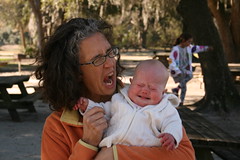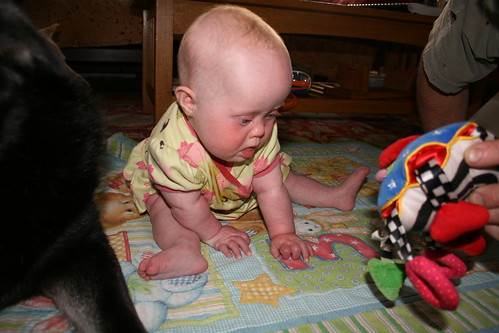I've had a number of jobs in which i worked for tips. One was table-waiting gigs and the rest were music-playing. I remember them all--and perhaps in order:
1) First was The Thunderbird restaurant in Cookeville, Tennessee, where the wizened old woman who ran the place told me she'd pay me 2.13 an hour (or whatever the standard rate was), but there was no tipping at her restaurant. She would make up for that no tips policy by feeding me once a night--no steaks. Also, my pay rate would go up to minimum wage after closing, because that's when i became the dishwasher.
2) When i was a teenager we all hung out at Elliston Place in Nashville. Elliston was the hip part of town at the time and home of the Exit Inn, immortalized in Robert Altman's movie Nashville. It was there i met up with a slightly older, more or less homeless guy named Tony. I was too green to know whether he was a deadhead or a junkie or maybe even a burgeoning, real street musician, but he knew a few good songs and a little about how to work a tip bucket. We would sit and sing You Can't Always Get What You Want and Wish You Were Here until we had enough money to go into Mosko's and buy some beer.
I took the skills i learned from Tony and, a few years later, spent some of a summer trying some street musician-ing around the hip parts of Atlanta, New Orleans, Louisville, and on and on. That's a hard way to go, believe me. Not only are you singing for tips, but you're also singing for a place to stay at night. If you're charismatic enough, you can usually talk some fun-loving couple or a too-trusting woman to put you up. More often than not, though, you're stuck with outside, sleeping in the booth at Denny's, or paying for a hotel. A car is the best way to go in a situation like this, but i was hitching.
If coming up with a place to stay wasn't hard enough, getting those tips takes a surprising amount of skill. For starters, it takes charisma. It wasn't that i wasn't exactly charismatic enough at the time (i wasn't, but not exactly not charismatic enough). You also have to be exactly the right kind of mess. In other words, not too straight, not to sloppy. You have to look like a smoker, but not like you're just smokin o.p.'s. You can't be too young (i was too young). I think it's best to look like you could've been a college professor that has decided to pursue an alternative career, that hasn't showered in quite a while yet is strangely non-stinky. Finally, it helps if you're willing to do the standards. I was not. I didn't want to do You Can't Always Get What You Want. I wanted to do my songs, or my versions of other people's songs. That won't get you far. A street musician is a musical prostitute and very few johns are asking "and what are you in the mood for?"
3: Ten years after playing for tips by hitchhiking around the south, i was playing Lower Broad in Nashville. There i played for an interesting guy named B--- G---. I'm not sure B knew he was a Jerry Lee Lewis impersonator. More accurately, i'm not sure B knew he was an impersonator of an impersonator. He'd learned his skills from a Memphis cat named Jason D. Williams who claimed to be the illegitimate son on the real Jerry Lee. Now with Jason D. Williams you found yourself enchanted in his skills, drawn in, entertained, almost a believer in the act. With B, i think the audience wasn't so much entertained as they were violently hypnotized by some sort of Jerry Lee-like vampire. He hooted and hollered! He stood on his piano and swung from the rafters! He played everything in the key of C! In short, although B was weird, he really knew how to work a crowd. That tip bucket really filled up over the course of the night.
4: Lo, these ten years later, i find myself here in Charleston with another tippy gig. I have a standing engagement on Wednesday and Sundays, for which we are well-paid, but we still have the tip bucket in front of us. I've collected some good schtick over the years: "if anyone has any requests, just write it on the back of a twenty dollar bill and bring it up here." Or if someone is trying to make a request from the audience: "I can't hear you--you're standing too far from the tip bucket." One of my favorites came from my friend Hugh who responded one night to a crowd of the clever-challenged who kept yelling out Freebird: That one's gonna cost you twenty dollars. And it's gonna cost you a whole lot more to get us to stop... Anyway, given that we don't have to depend on that bucket for pay at the end of the night, we don't work it too hard, but still it's nice to get a dollar or two for a particularly well-played song or fulfilling a request. Don't have a dollar and want to hear you're favorite song? No Problem. We'll we glad to do it if we know it.
That's why it was interesting the other night when a gentlemen came up to request the song Fields of Athenrye (it's an irish pub). I spotted this guy and his wife earlier in the evening. They stuck out because the two of them looked like the relatives we all have that are kinda tiny, that still live in the same tiny town they've always lived in, going to the same vaguely mothball-smelling church they've always gone to, wearing the same polyester suits they're wearing in the photos that line the hallway of their home sweet home. They were sweet, obviously. I feel pretty confident that this was one of the first real vacations they'd ever had. It had just been too expensive before now, but now that he's actually retired...
So he made his way up through the crowd and stood in front of the stage quietly waiting to be noticed. He asked his soft question about Fields of Athenrye, to which my partner said, of course, we'd be glad to do it. He nodded, and kept looking at us while backing away and simultaneously putting his hand up to the tip jar. Now, our tip jar is a tall, square, plastic bucket stolen from the kitchen and probably previously used to hold lettuce. It's scratchy, but by no means opaque. It sits on a bar stool in front of the stage. The sweet, sky blue, polyester man kept his eyes locked on us as he backed up, backed up, and then raised his arm to the level of the jar. He was really short. He made a kind of unclenched claw-like motion a lot like the grocery store stuffed-animal claw machine does when letting go of the coveted zippo lighter box. I worried that he was going to trip backwards.
I'm quite sure nothing fell from his hands. It's a long way to the bottom of that bucket and i didn't see anything float down. Not a scrunched up dollar bill, not one of those million dollar bills that offer to save your soul we get sometimes, not loose change.
He didn't have to go to all that trouble. I don't play music for the tips. Even on the street, i played music because i love it and it makes people happy. Money's great--and necessary. Tips are great and tips validate the job you're doing, but in the end they're just helpful. It's a different story on waiting tables, believe me, but with music somehow it just always feels like a gift you wanna give away. My partner and i were happy to play Fields of Athenrye and watch the little guy and his wife hold hands and enjoy (perhaps a meaningful) song on their vacation to Charleston. I wish i could give that guy his tip back.
 I find this belief troubling for a couple of reasons. First of all, it's reductive. It flattens Maybelle's personality, implying that she'll have one mode or valence, and that will be sweetness. Sometimes this is offered in a kind of compensatory way: "It's too bad that your daughter's fucked up, but at least she'll be sweet!" And to that I say, it's just not true. Of course she'll be backtalking me when she's thirteen--she'll be a teenager with hormones and opinions and a desire to differentiate herself from her family. Perhaps, as my dad has always warned me would happen, she'll start defining herself as an Alex P. Keaton-style conservative. Or perhaps Biffle and I will be too mainstream for her and she'll be playing bass for a punk rock grrrl band. It doesn't matter--the fact is that she will be a complex person in the world with thoughts and feelings all her own. She'll have sweet aspects to her personality and aspects to her personality that will make me want to pull my hair out. And good for her!
I find this belief troubling for a couple of reasons. First of all, it's reductive. It flattens Maybelle's personality, implying that she'll have one mode or valence, and that will be sweetness. Sometimes this is offered in a kind of compensatory way: "It's too bad that your daughter's fucked up, but at least she'll be sweet!" And to that I say, it's just not true. Of course she'll be backtalking me when she's thirteen--she'll be a teenager with hormones and opinions and a desire to differentiate herself from her family. Perhaps, as my dad has always warned me would happen, she'll start defining herself as an Alex P. Keaton-style conservative. Or perhaps Biffle and I will be too mainstream for her and she'll be playing bass for a punk rock grrrl band. It doesn't matter--the fact is that she will be a complex person in the world with thoughts and feelings all her own. She'll have sweet aspects to her personality and aspects to her personality that will make me want to pull my hair out. And good for her!.jpg)


